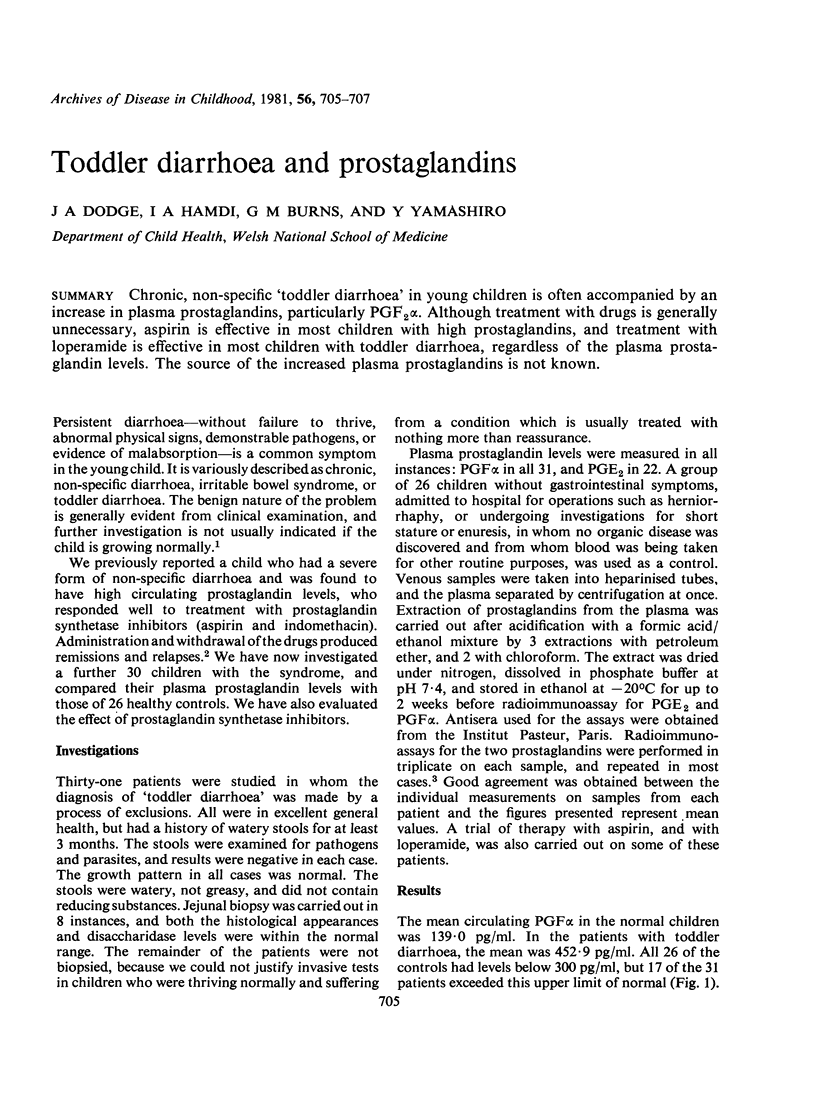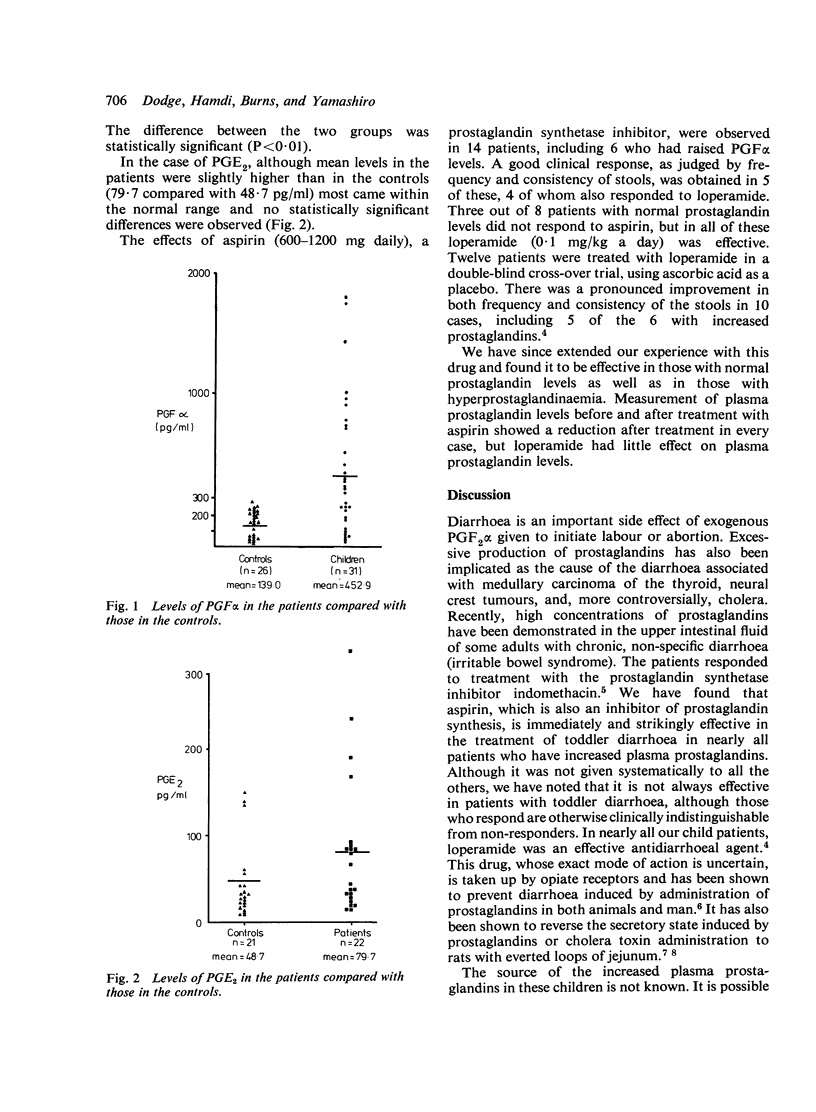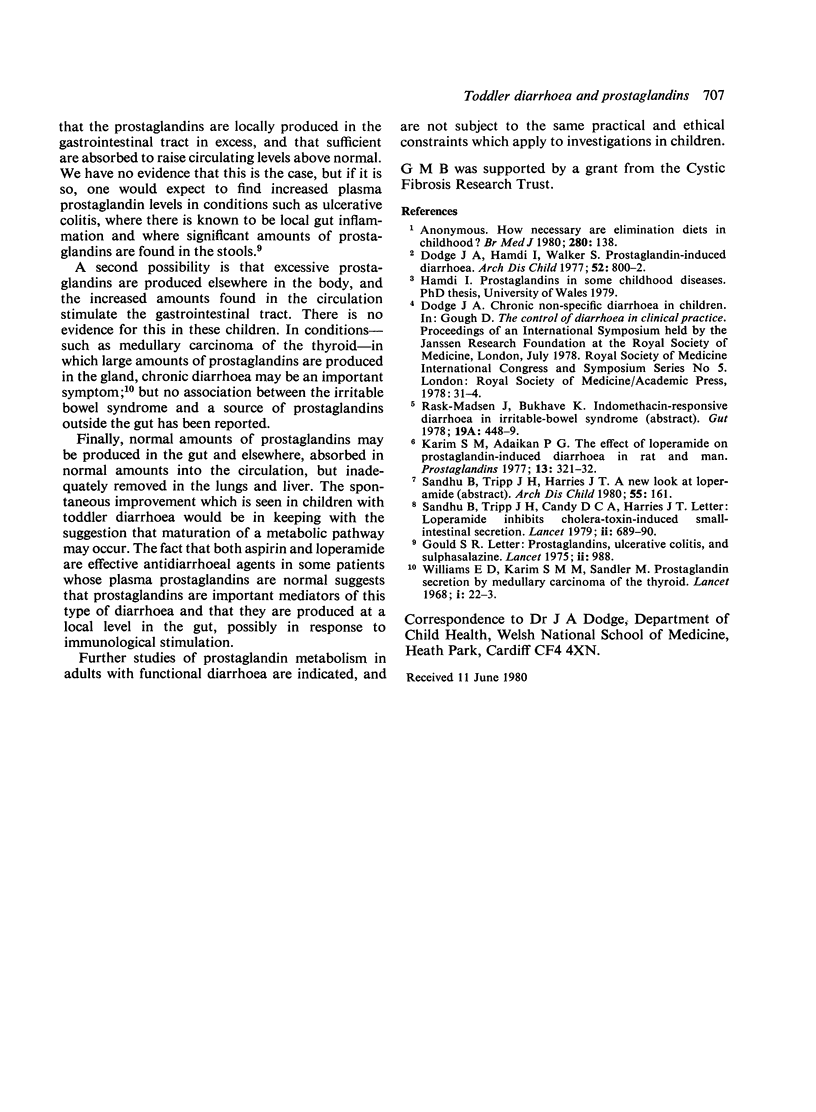Abstract
Chronic, non-specific `toddler diarrhoea' in young children is often accompanied by an increase in plasma prostaglandins, particularly PGF2α. Although treatment with drugs is generally unnecessary, aspirin is effective in most children with high prostaglandins, and treatment with loperamide is effective in most children with toddler diarrhoea, regardless of the plasma prostaglandin levels. The source of the increased plasma prostaglandins is not known.
Full text
PDF


Selected References
These references are in PubMed. This may not be the complete list of references from this article.
- Dodge J. A., Hamdi I., Walker S. Prostaglandin-induced diarrhoea. Arch Dis Child. 1977 Oct;52(10):800–802. doi: 10.1136/adc.52.10.800. [DOI] [PMC free article] [PubMed] [Google Scholar]
- Gould S. R. Letter: Prostaglandins, ulcerative colitis, and sulphasalazine. Lancet. 1975 Nov 15;2(7942):988–988. doi: 10.1016/s0140-6736(75)90414-6. [DOI] [PubMed] [Google Scholar]
- Karim S. M., Adaikan P. G. The effect of loperamide on prostaglandin induced diarrhoea in rat and man. Prostaglandins. 1977 Feb;13(2):321–331. doi: 10.1016/0090-6980(77)90011-9. [DOI] [PubMed] [Google Scholar]
- Sandhu B., Tripp J. H., Candy D. C., Harries J. T. Loperamide inhibits cholera-toxin-induced small-intestinal secretion. Lancet. 1979 Sep 29;2(8144):689–690. doi: 10.1016/s0140-6736(79)92083-x. [DOI] [PubMed] [Google Scholar]
- Williams E. D., Karim S. M., Sandler M. Prostaglandin secretion by medullary carcinoma of the thyroid. A possible cause of the associated idarrhoea. Lancet. 1968 Jan 6;1(7532):22–23. doi: 10.1016/s0140-6736(68)90010-x. [DOI] [PubMed] [Google Scholar]


